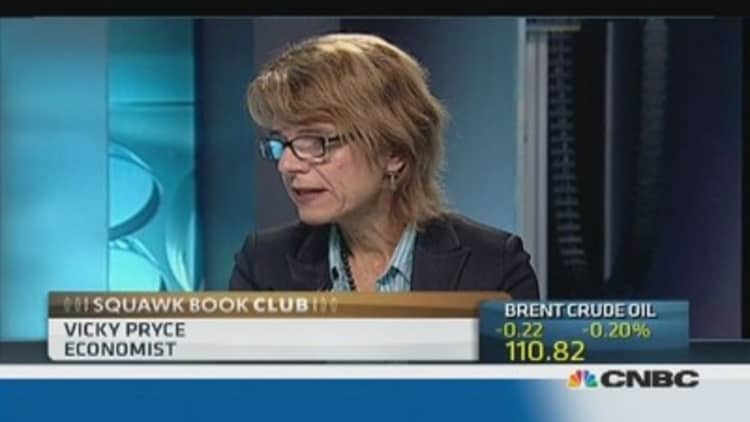
The U.K. government urgently needs to review and re-evaluate the costs and benefits of the country's prison system, the economist, business consultant and former prison inmate Vicky Pryce told CNBC on Tuesday.
Pryce rose to fame – or rather, infamy – in 2013 during a highly publicized court case involving her former husband, the U.K. politician Chris Huhne, and a speeding offense in which he was involved.
She was sentenced to eight months in prison for perverting the course of justice after she accepted driving license penalty points on her own license that were in fact incurred by Huhne, who was also sentenced to eight months in prison for the criminal offence. Huhne's crime only came to light after he left Pryce for another woman and his former wife told the media of the cover-up.
During her two-month stint in East Sutton Park prison in Kent, south east England, Pryce analysed the U.K.'s prison service and concluded that custodial sentences were often a costlier and less societally beneficial means of social rehabilitation.
"I spent quite a lot of my time wondering whether prison is fit for purpose. What's going on is that we send an awful lot more people to prison than other countries do at a time when the crime rate is falling," Pryce told CNBC Europe's "Squawk Box" on Tuesday.
"The question for me is whether we have value for money from what the government is spending right now – are we spending these billions [on prisons] in a way that makes sense?" Pryce said.
Pryce has compiled her experiences into a book entitled "Prisonomics" which she said documents the economics of the penal system.
With the Ministry of Justice's latest figures stating that a category B male prisoner (those who do not require maximum security, but for whom escape still needs to be very difficult) costs the U.K. taxpayer almost £35,000 per year and almost 85,000 people incarcerated, the cost of custody is a moot point for the U.K. public.
Pryce said her own findings also suggested that prisons were economically and socially unfit for purpose. "Punishment, in terms of sending people to prison, doesn't seem to reduce crime –it's not working as a deterrent," she said. "Based on my experience, I looked at alternatives…and I'm arguing in the book that alternatives that can be found much more cheaply than prisons."
(Read more: Prisoners fear freedom in crisis-hit Europe)
Community service in the U.K. is an alternative to incarceration for less serious crimes although it is often seen as a "softer" – and hence more unpopular -- option by the British public. Pryce said that, on the contrary, community service was more effective than prison but just hadn't "been sold properly to the public."
With the U.K. suffering from high rates of re-offending -- around a quarter of released prisoners re-offend within a year of completing their sentence, according to data from the U.K.'s Ministry of Justice -- Pryce said alternatives to prison, such as supervised educational or drug rehabilitation programs, were much more likely to solve the problems that led to a crime being committed in the first place.
Keen to not appear to be profiting personally from her experience, proceeds from the sale of her book are going to the charity Working Chance, which finds work for offenders reaching the end of their sentences and ex-offenders.
(Read more: Will.i.am: America's prison problem is embarrassing)
Her account of prison life is not Pryce's first foray into the literary world, with her current tome following a 2012 book on Greece, entitled "Greekonomics."
Greek-born Pryce, who moved to England from Athens as a teenager, said that there was a parallel to be drawn between the two works however, with Greece undergoing unpleasant austerity measures and reforms akin to a prison sentence, that might not ultimately be the best solution to return the country to economic growth.
"More cuts and more austerity will tip them over the edge I think. The economy is beginning to at least drop a lot less fast than before…but now they need to encourage confidence and get investment in the country," she told CNBC.
- By CNBC's Holly Ellyatt, follow her on Twitter @HollyEllyatt


